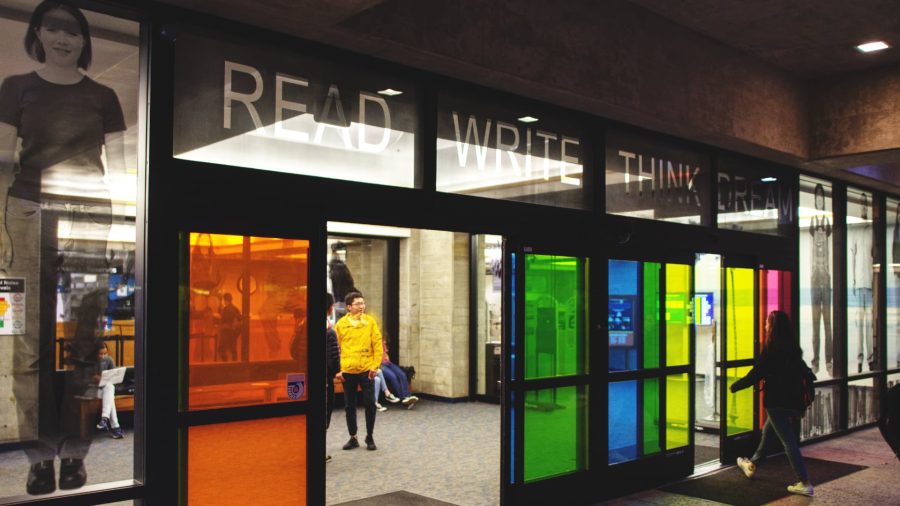The relief I felt after my last final of Fall Quarter remains unmatched. After spending countless hours in the library for months, with a mere two days off in between, I was beyond ready for winter break to begin. However, upon returning to campus for Winter Quarter, I still felt as though I needed more time to rest and recover, despite having had three weeks off. Since midterms can begin as early as Week 3 of the quarter, students don’t have much time to adjust and learn before being assessed which makes the quarter system feel like a fast lane to graduation.
Last week, Elizabeth Simmons, the Executive Vice Chancellor of UC San Diego, confirmed rumors that UCSD may switch from the quarter system to the semester system in order to foster a less stressful environment on campus. Simmons explained that “no decision has been made [and] is anticipated that the process for such a transition would take time and require approval by the systemwide Academic Senate and UC Regents.”
Nonetheless, I believe that switching to a semester system would be worth the wait because of the numerous benefits it offers students. The system is already favored by countless universities across America. UC Berkeley and UC Merced already operate on the semester system, not to mention that roughly 95 percent of all four-year universities in America have adopted it according to a study conducted by California Polytechnic State University. Many of these schools did so to relieve students from unnecessary stress and anxiety.
Switching UCSD to a semester system would provide students more time to learn and absorb content, and allow them more time to care for their mental health, thus improving the overall wellbeing of students. In turn, utilizing the semester system would only increase the academic success of students.
Due to the fast-paced nature of the quarter system, students typically find themselves focusing on information they believe they will be tested on. In turn, many are simply skipping over the rest of the material and thus not absorbing all the content intended. Transitioning UCSD to the semester system would provide students with the much needed time to learn and absorb course material, and in turn, would be better for their mental health by giving them more time to focus on self-care.
Additionally, having more time to learn the content before midterms and final exams would provide students more time to adjust and prepare for their classes. The semester system consists of two 15-week periods, while the quarter system consists of three 10 week periods. According to experts from the University of Portland, the semester system allows incoming freshmen and transfer students an easier time adjusting to the rigor of college academic life
In a semester system, students will have time to focus on the handful of classes that they are taking rather than spreading themselves out thin with coursework, as they would be able to take a lighter and less condensed course load. This additional attention students would be able to give their academics will translate into a deeper understanding of the material and more time to engage with professors outside of class, as they would have the time to focus on deeper concepts rather than retention of information.
Furthermore, this relief of academic stress on students would translate to more time for students to take care of their mental health. Having five additional weeks of learning time would give students more freedom to plan their day so that they can get closer to achieving the ideal eight hours of sleep a night. This is because if professors teach the same material that they currently cram into 10 weeks into 15 weeks, they would have time to go over tougher concepts and answer student questions, preventing students from staying up all night trying to piece things together themselves. Seeing as there is a close correlation between sleep deprivation and declining mental health, this is extremely important. Additionally, it would give students more time to practice proper self-care, as students would no longer have to pack every minute of the day with work and classes.
Some may argue that the quarter system is superior because it gives students space in their schedules to retake classes or get ahead on their coursework. However, there are other ways to do so. If students weren’t as rushed as they are on the quarter system, fewer people would have to retake classes in the first place, as they would have the time to address questions they have about the material covered in lectures. Additionally, UCSD offers two Summer Sessions for those who may need to retake a class or get ahead. So rather than forcing the entire student body to quickly learn course material in 10 weeks, there must be a stronger emphasis on Summer Sessions as an option for students who want or need to take extra classes.
If UCSD wants to ensure their students are well-equipped to succeed, its faculty and staff must consider the numerous benefits of adopting the semester system for its students, taking into account the current rushed nature of classes on the quarter system in conjunction with the impact of having more time to learn the material on students.
Photograph courtesy of the UCSD Guardian Photography Team.














